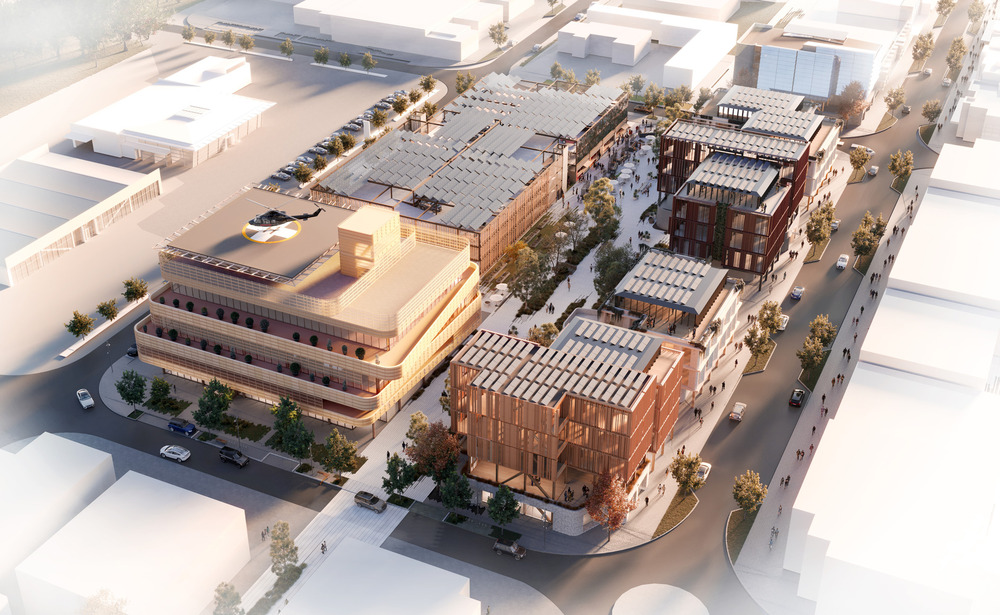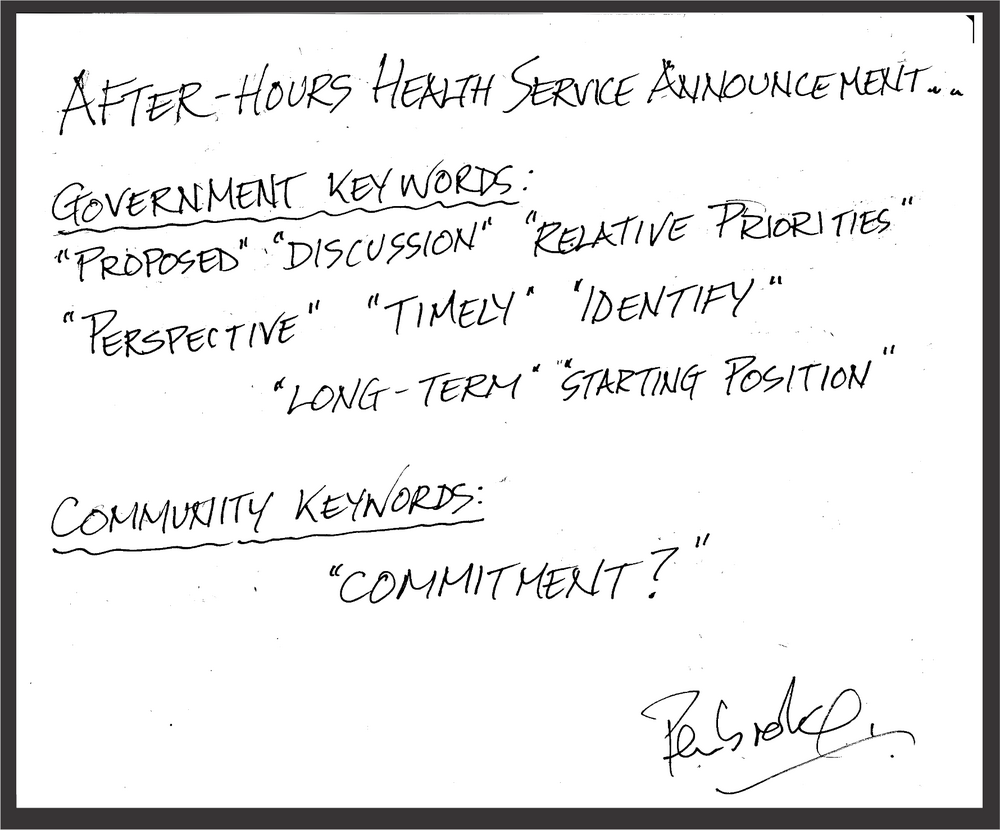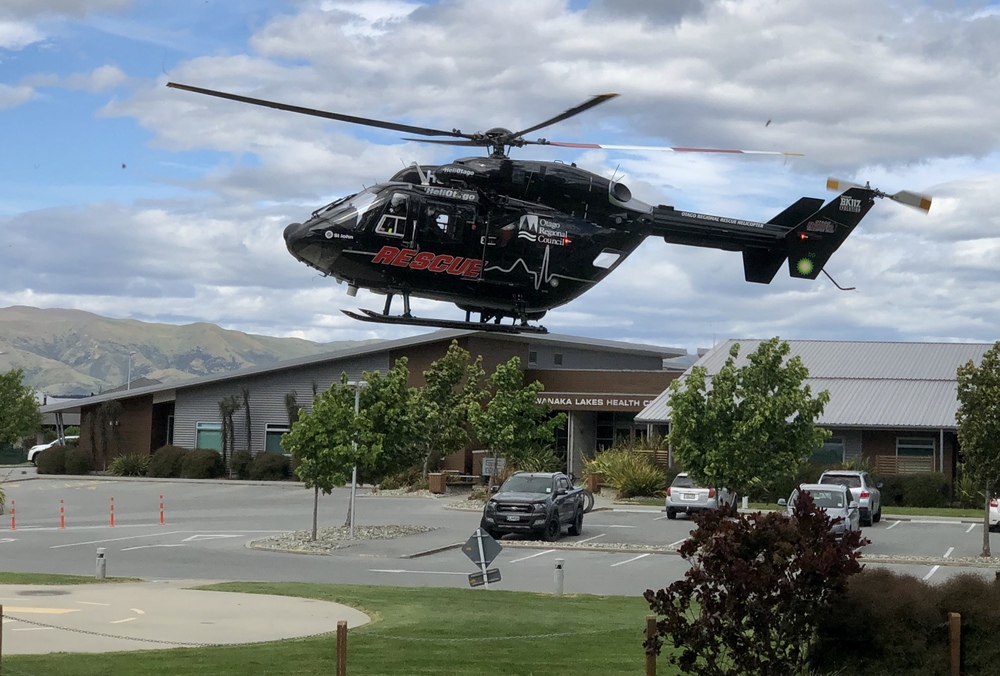Health services to wait for infrastructure & investment plan
Sue Wards
03 July 2024, 5:06 PM
 Health minister Shane Reti and prime minister Christopher Luxon at the official opening of Wānaka’s birthing unit on Thursday (June 27). PHOTO: Wānaka App
Health minister Shane Reti and prime minister Christopher Luxon at the official opening of Wānaka’s birthing unit on Thursday (June 27). PHOTO: Wānaka AppRecent announcements of health services for the Upper Clutha are interim services and long- term services will be a year or more away and depend on the outcome of a national infrastructure and investment plan.
Last Thursday (June 27) was a big health news day for Wānaka, as the prime minister and health minister touched down to officially open Wānaka’s new primary birthing unit and announce an interim after-hours service for the Upper Clutha to open in September.
While the birthing unit - named Rākai Kahukura - has been officially opened, the doors to the unit won’t open until the end of the month (July 29) when work is completed on the facility.
As for the after-hours service, health minister Dr Shane Reti acknowledged it was “a starting position” to “at least address after hours care”.
Any specific questions about health services in the Upper Clutha from local journalists he deflected to the government’s proposed infrastructure and investment plan, which he said will identify where infrastructure is triaged across the country.

The health minister would not be drawn on plans for a privately-funded hospital at Three Parks, nor on future publicly-funded plans. IMAGE: Supplied
A more “focused discussion” on infrastructure for this area would not happen until early 2025, he said.
The government says the infrastructure investment plan will establish a national position on the capital investments required to support the goals of the health system, developing a long-term perspective on the relative priorities and sequencing of investment in facilities to support future service delivery.

Prime minister Christopher Luxon said Roa’s plans for a $300M privately-funded hospital as part of a ‘health precinct’ at Three Parks were going through a process and he would not comment.
Read more: Roa to apply for fast-track approval
Dr Reti wouldn’t be drawn on whether a regional hospital for this area was inevitable, but said the government’s goal was “to deliver timely access to quality healthcare”.
He told journalists he accepted the challenges of rural terrain and weather, and acknowledged that the Upper Clutha and Southern Lakes in general was a growth area.
“These are the challenges that we see and will identify in the infrastructure plan,” he said.

A long-term solution to after-hours care in the Upper Clutha will have to wait for a year or more. PHOTO: Wānaka App
Dr Reti said he expected that the $30M funding boost for radiology services, which is currently being piloted at Capital Coast and Hutt Hospitals, would be rolled out quickly to other regions, but he would not comment specifically on whether or not the Upper Clutha would benefit from it.
The prime minister told media the government was “very open” to public private partnerships in the health sector.
“We’re open to getting the infrastructure built faster and better,” he said.
Continued push for viable long term after-hours care
Local advocacy for better access to health services has been building in Wānaka, with after-hours services a key issue.
Wānaka Upper Clutha Community Board chair Simon Telfer told the Wānaka App he was grateful to Central Otago Health (Dunstan Hospital) for “a long period of planning in this area and for Monique [Mayze] and the Health Action Wānaka team for keeping the pressure on”.
“This gives us 12 months of service during which we will continue to push for a viable long term model of after hours care,” he said.
“The momentum we created from March's community meeting in the Lake Wānaka Centre is really pleasing. It shows that a co-ordinated and engaged public can bring about change.”
Te Whatu Ora also acknowledged the planned nurse-led after hours service (which will be available from 11pm to 8am seven days a week in Wānaka with remote support by the local Dunstan Hospital overnight physician and rural after-hours telehealth service Ka Ora) was “an interim measure” for 12 months.
“We are putting an interim solution in place for the Wānaka community while we look at alternative models of care that can be provided in the long-term across the region,” Te Whatu Ora Te Waipounamu regional wayfinder Chiquita Hansen said.
“We are aware that the population in Central Otago is growing fast and we continue to work with partners across our health system to improve access to primary healthcare. Our planning process will ensure community voices and local priorities inform any future developments.”
Central Otago Health Services Limited chief executive Hayley Anderson said the organisation was delighted to be able to provide the interim service, which was “something we have considered could be delivered for our community for a long time”.
Central Otago Health Services Ltd is now advertising for registered nurses to work as clinical nurse specialists, who are “prepared to work alone at times”, for the seven day a week overnight “assessment and monitoring service” in Wānaka.
“The service will be nurse driven with clinical telehealth support from Dunstan Hospital senior medical doctors,” the advertisement says. “The service is currently in its planning phase, we expect to have this established by early September 2024.”






